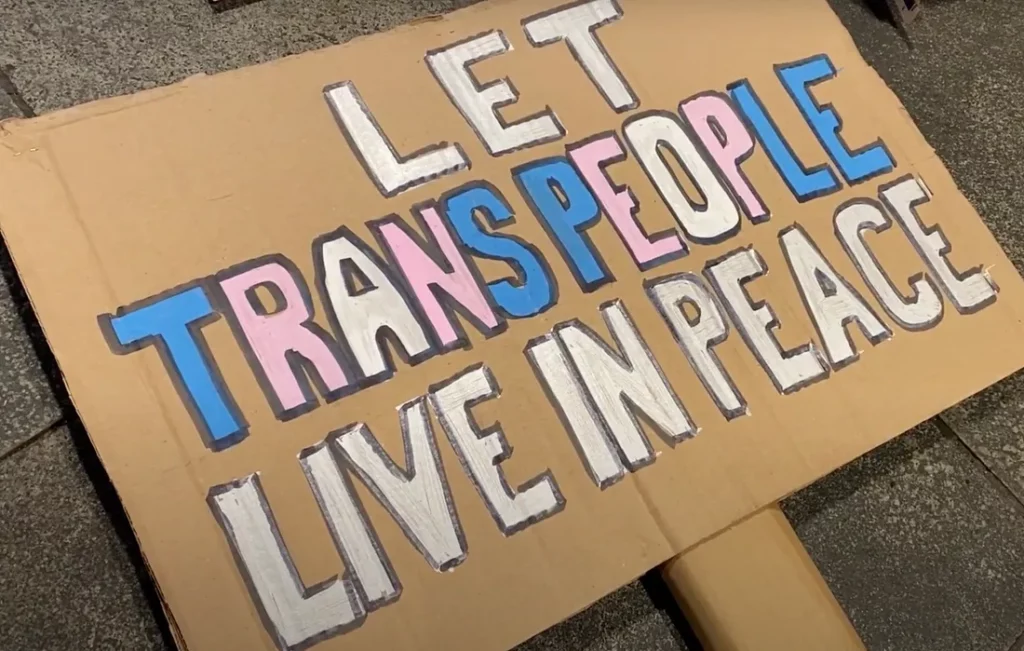LGBT+
Trans activists are not the victims of cruelty. They are the perpetrators of it.
The central claim of the transgender movement was repudiated by headlines emblazoned across the front pages of nearly every major newspaper in the United Kingdom after the Supreme Court ruled unanimously that a woman is defined by biological sex under equalities law on April 17.
From the Metro, the free daily newspaper given out on trains and buses to thousands of commuters: “Transwomen ‘not women’”
The Daily Telegraph: “Trans women are not women”
The Guardian: “Legal definition of woman ‘is based on biological sex’”
The Times: “Equality policies in chaos as court defines a woman”
The Independent: “Huge blow for trans rights as court says: you are not women”
Other outlets didn’t bother hiding their editorial line—the Daily Express headline read “Victory!”; the Daily Mail declared a “Historic victory for women and common sense”; and the Scottish Sun could not resist going with: “The Joy of Sex.”
The UK Supreme Court’s ruling marks the culmination of a protracted legal battle that is already sending shockwaves across the UK and, indeed, the Western world. In 2021, the feminist group For Women Scotland challenged the Scottish Government’s Gender Representation on Public Boards Act 2018, which included trans-identifying men in their definition of “woman,” arguing that this violated the Equality Act’s definition of “sex.”
Scotland’s highest civil court ruled in favor of For Women Scotland in 2022, holding that “sex” in the Equality Act refers to biological sex; the Scottish Government appealed the ruling, and the legal battle became a flashpoint for trans activist groups and their opponents alike as both recognized the likely significance of the outcome. In July 2024, the UK Supreme Court heard the case; on April 16, they solemnly declared the obvious: Women are, in fact, women.
Lord Hodge tried to soften the blow. “The unanimous decision of this court is that the terms woman and sex in the Equality Act 2010 refer to a biological woman and biological sex,” he said, adding: “But we counsel against reading this judgement as a triumph of one or more groups in our society at the expense of another, it is not.” It was a triumph nonetheless—the ruling permits single-sex services to exclude “transgender women”—and the ruling clarifies what sex has always meant under the law, rather than going forward.
In short, as one lawyer noted: “This has implications for cases concluded, cases currently being fought, employers’ trans access policies and lots more. Huge.” Or as J.K. Rowling, who spent the day trolling the trans activists who have sought to make her life miserable for the past half-decade, put it: “I can hear the rubbing of UK lawyers’ hands from here and I’m an ocean away.”
The bizarre coalition of feminist activists, social conservatives, and ordinary people impacted by the transgender agenda are justifiably celebrating, but it must be noted that it is a mark of trans activist success and the insanity of our times that the UK Supreme Court actually had affirm that men who identify as women are not, in the eyes of the law, women. For millennia, this was obvious. For a decade, it was not (at least, for the establishment). Now, reality has reasserted itself.
Trans activists, predictably, are reacting the way a child does when his parent tells him that no, sweetie, you can’t just be someone else by putting on a costume. TransActual UK claimed that the decision would “exclude trans people wholesale from participating in UK society,” rather than merely excluding them from single-sex spaces that exclude them by definition. Trans activist India Willoughby claimed that “I have always been a woman. I remain a woman. And I will die a woman.” The law, of course, now disagrees with him.
Easter weekend in London saw a trans-activist demonstration against the Supreme Court ruling, during which protesters carried banners calling for death to gender-critical women, vandalized monuments, and urinated in public as a political statement—all with barely a flicker of police intervention.
READ THE REST OF THIS COLUMN AT THE EUROPEAN CONSERVATIVE








